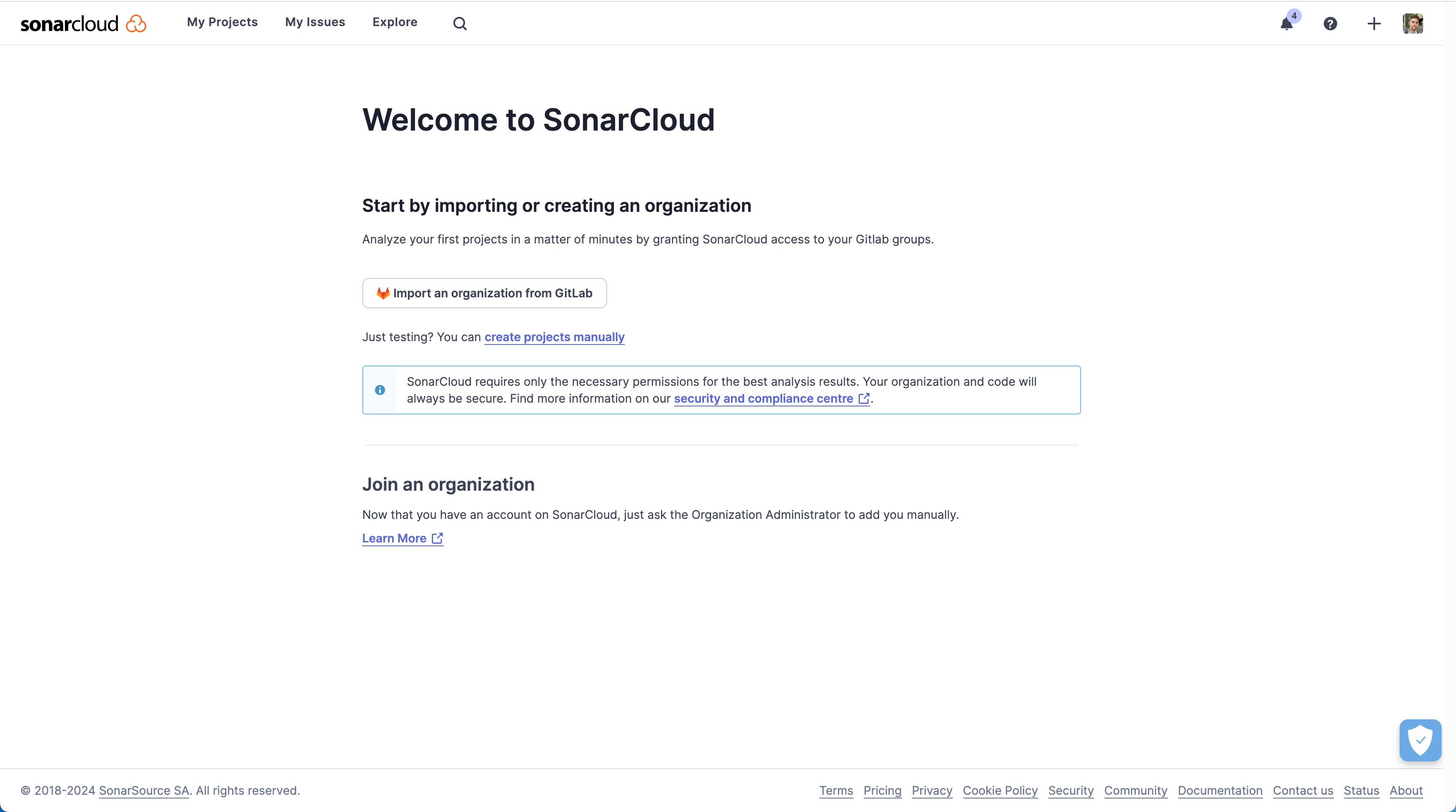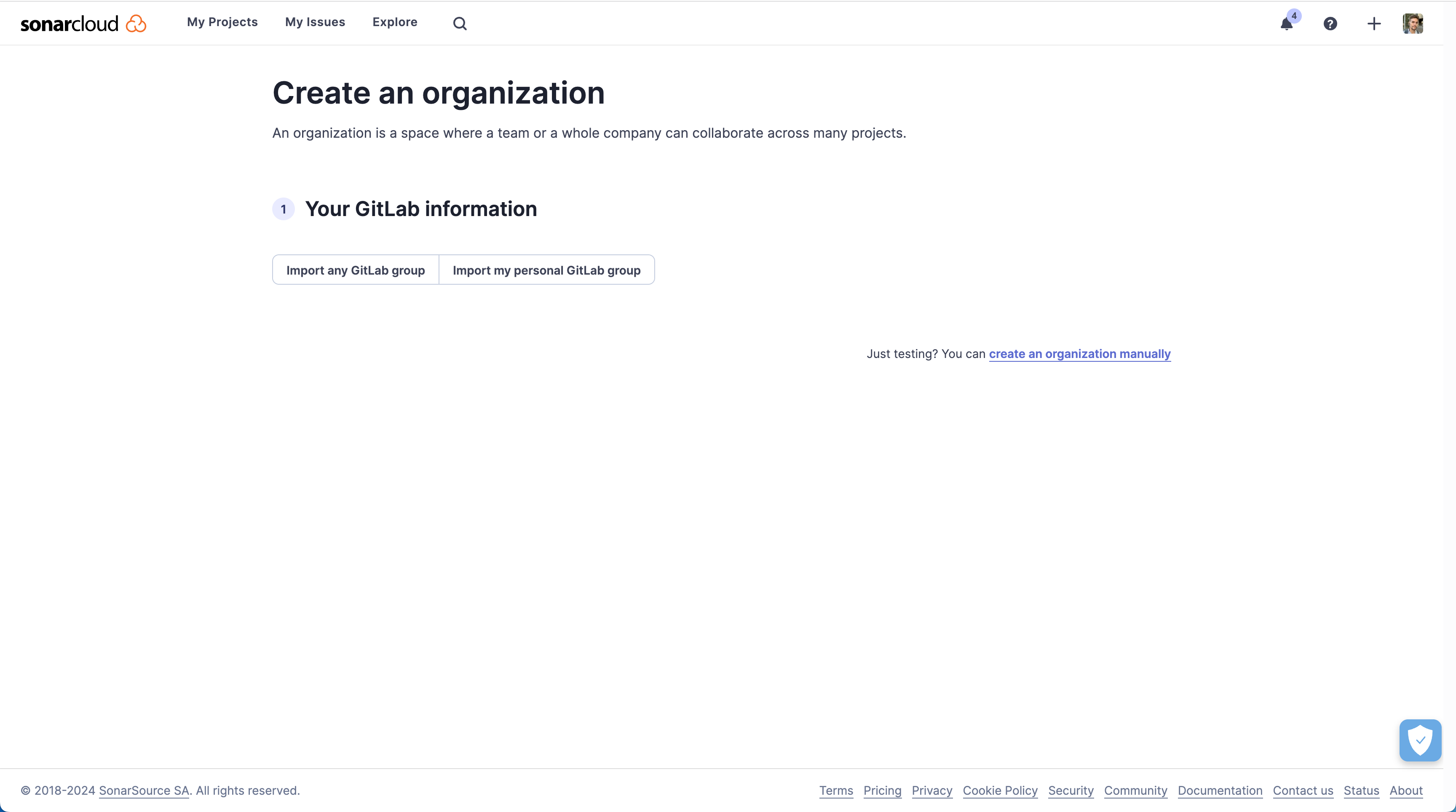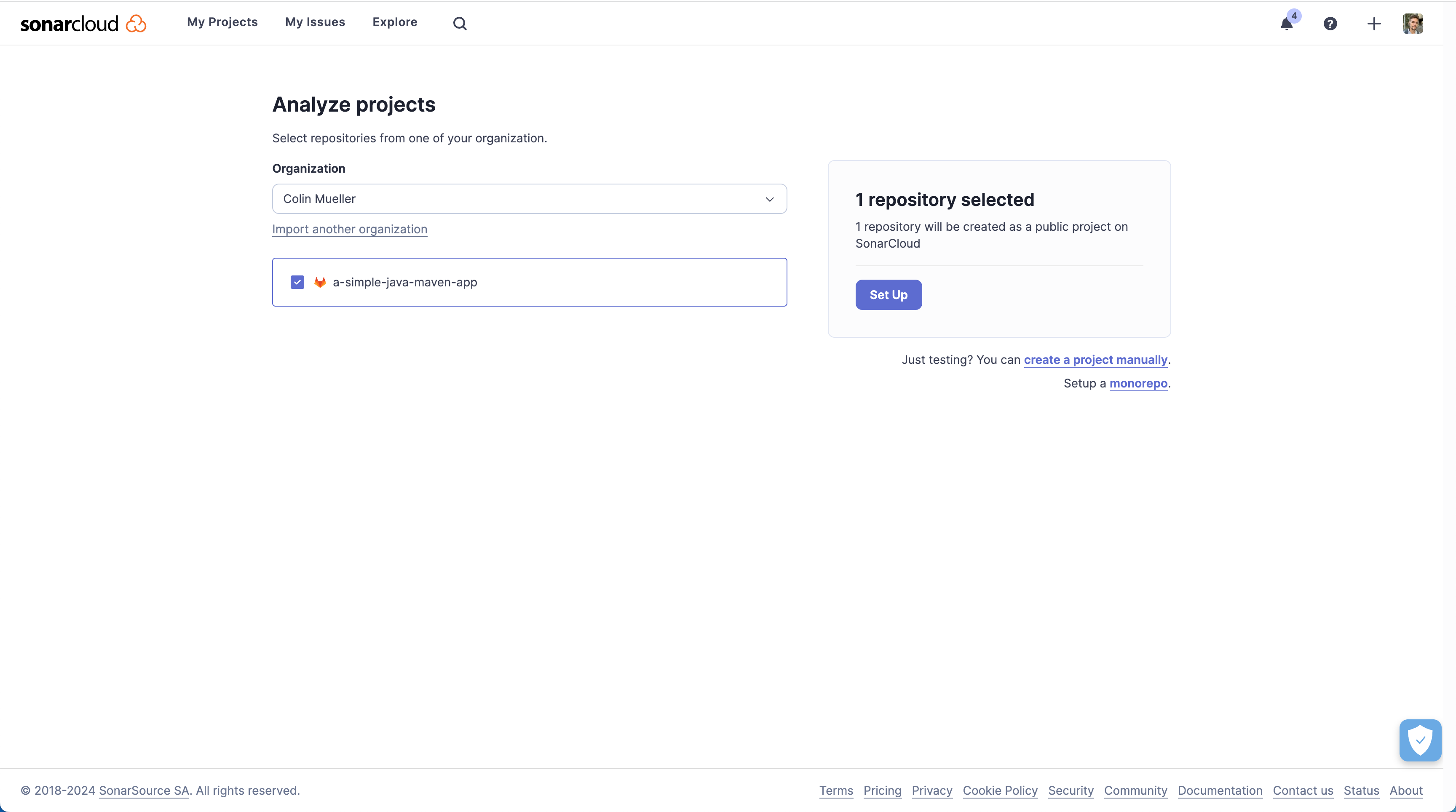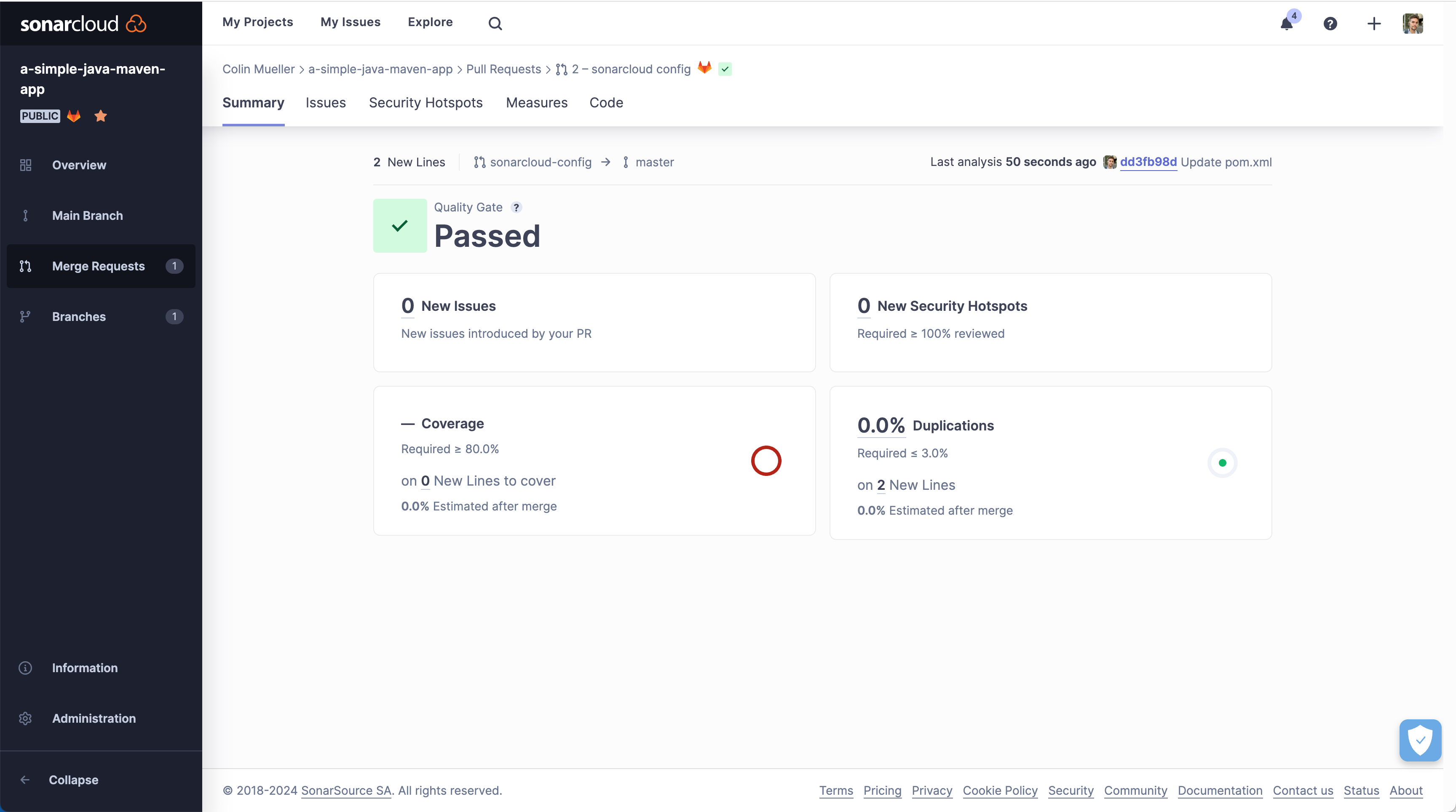Integrating SonarQube Cloud with GitLab: It’s as easy as a few clicks
Preserving code quality and security is crucial in today's ever-changing software development market.
Solutions like SonarQube Cloud and GitLab come in handy, forming a strong combination for developers striving to maintain high standards in their projects.
In this article, we'll focus on SonarQube Cloud and GitLab and walk you through the process of connecting these two key platforms to boost your software development efficiency.
What is SonarQube Cloud?
SonarQube Cloud is a cloud-based static code analysis service that performs continuous code quality and security checks. It is intended to discover code smells, defects, and security problems in your codebase.
Integrating SonarQube Cloud into your development workflow will ensure that your code is functional and clean, leading to reliable, maintainable, and secure software.
It supports a wide range of programming languages and works flawlessly with a variety of CI/CD systems, making it an adaptable option for teams of all sizes
Why Use SonarQube Cloud in Your Software Development?
- Improved Code Quality: SonarQube Cloud helps you maintain a high standard of code quality by identifying and suggesting fixes for code smells and bugs.
- Enhanced Security: It detects security vulnerabilities in your code, helping you address potential threats before they become serious issues.
- Continuous Feedback: With continuous analysis, you get real-time feedback on your code changes, allowing you to make improvements early in the development process.
- Native integration with DevOps platforms: Easy integration with GitHub, Azure DevOps, BitBucket, andI GitLab. Incorporate automated code analysis into your DevOps workflow in a matter of minutes. Find out more about how Sonar can transform DevOps.
- Quality Gates: Prevent code that doesn’t meet defined quality standards from entering the DevOps pipeline, preventing rework and other issues later in the DevOps cycle.
- Automatic Analysis: No configuration is required to start scanning your code in most languages.
What is GitLab?
GitLab is a web-based DevOps solution that offers a complete platform for software development, encompassing project planning, source code management, CI/CD (continuous integration and continuous deployment), monitoring, and security.
This is a collaborative open-source application designed to enhance the software development process. GitLab is important in the development process for several reasons:
Why Use GitLab in Software Development?
- Collaboration: GitLab fosters collaboration through merge requests, code reviews, and discussion threads. Developers can easily give feedback on code changes, discuss potential improvements, and document their decisions, leading to better code quality and team alignment.
- Source Code Management (SCM): GitLab is built around Git, the widely used version control system that allows multiple developers to work on the same codebase without conflicts. It provides tools for branching, merging, and reviewing code, making it easier to manage changes and ensure quality.
- Scalability: GitLab can be scaled to accommodate small teams to large enterprises, and it supports a wide range of programming languages and frameworks.
- Integration with Tools: GitLab integrates with a wide range of development tools and services, including continuous integration and deployment (CI/CD) platforms, project management tools, and code analysis solutions like SonarQube Cloud and SonarQube Server.
Integrating GitLab into your development process can enhance cooperation among team members, optimize workflows, enhance code quality, and expedite delivery timeframes, making it an indispensable tool for contemporary software development teams.
SonarQube Cloud and GitLab Integration
Connecting SonarQube Cloud with GitLab is as easy as a few clicks.
Start by signing up for a SonarQube Cloud account at SonarQube Cloud.io.
You can use your GitLab account for a quick and easy sign-up process.

After that, follow the steps below and you will be writing Clean Code within minutes.
Integration steps:
- Once logged into SonarQube Cloud, import an organization from GitLab or create an organization manually.

- Create a SonarQube Cloud organization that corresponds to your GitLab group.
- Choose a SonarQube Cloud plan, free or paid.
Analysis steps:
- Select a project to import.
- Scanning your first project is as simple as clicking Set Up. SonarQube Cloud’s automatic analysis doesn’t require configuration so you can begin scanning immediately.

- Set the New Code Definition (NCD) for your project. By defining what is considered new code, developers can focus their attention on the most recent changes following Sonar’s recommended Clean as You Code approach.
- Automatic analysis will be triggered instantly upon setup completion.
- SonarQube Cloud will return a dashboard showing your code's health status, including issues related to reliability, security, maintainability, and more.

That’s it!
Interactive demo
Need a little more help?
Here is a step-by-step interactive tutorial detailing everything you need to start analyzing your first project.
GitLab is a key component in modern software development, offering a dependable platform for version control, collaboration, and integration with other development tools. Its value extends beyond code hosting to collaboration and continuous improvement, both of which are critical components of successful software development.
GitLab's integration with SonarQube Cloud ensures that developers' projects are not only managed efficiently but also fulfill the highest code quality and security standards.
Start using SonarQube Cloud right now.

